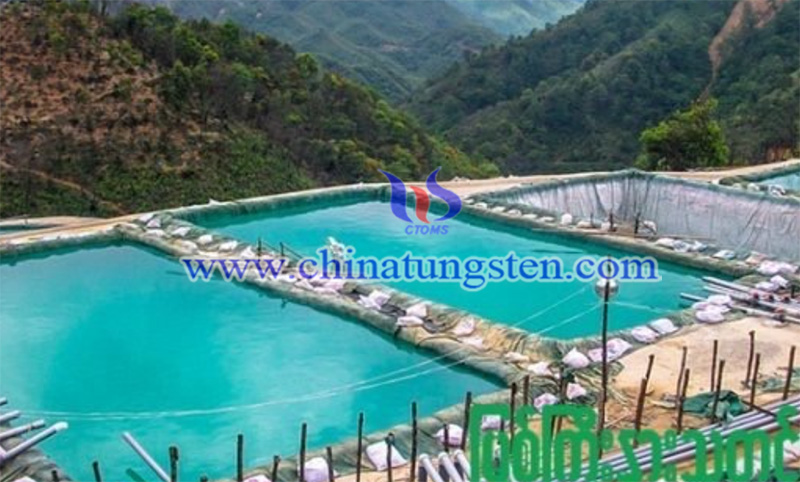Illegal Rare Earth Mining Multiply in Myanmar
- Details
- Category: Tungsten's News
- Published on Sunday, 23 May 2021 10:12
Illegal rare earth mining on the China border multiply since the Burmese coup. The Irrawaddy wrote an article that Myanmar is China’s largest source of rare earths. Following the coup, environmental protection organizations exposed that the mining has increased at least five times in Pangwa and Chipwi townships amid Burmese political turmoil, with a rapid influx of China's workers.
Rights activists in Pangwa Township revealed that before the Burmese military government launched the coup, it had seen one or two trucks entering the mining area every day. An activist in Chipwi told The Irrawaddy, now, without proper inspections, they have discovered that 10 to 15 trucks have increased in and out of the mine. He said the trucks are loaded with ammonium sulphate fertilizer bags filled at illegal mines.

The northern mining area of Kachin State is controlled by a militia supported by the Burmese military government. It is said that illegal rare earth mining activities have become a source of revenue for the military government. A staff of Transparency and Accountability Network of Kachin (TANK) pointed out that in the past during the administration, officials would quickly deal with the problem of illegal rare-earth mining, but after the coup, they have completely lost control.
The staff said: "At present, trucks carrying rare earths in the mining area are driving around the clock, and the situation is getting worse and worse, and we can see a large influx of Chinese miners into the mining area. Some environmental protection organizations also pointed out that the heavy rare earths in Kachin State are exported to China refines and processes, and then sells them all over the world."
The TANK also mentioned that about 10 rare-earth mining areas have been opened near the Zam Nau border, which are controlled by the New Democratic Army of Kachin (NDAK), which is linked to the Myanmar military. In addition, the Kachin environmental protection organization estimates that more than 100 rare earth mines in Panwa and Chipei townships are controlled by Burmese militias and Chinese investors.
Clare Hammond, a member of the human rights organization Global Witness, said that the Burmese military specifically ordered a ceasefire in the border area, allowing militia organizations in the area to profit from illegal rare earth mining activities in exchange for their interest in giving up armed resistance and performing protection work.
Hammond emphasized: "The operation of illegal mining of rare earths in mining areas is mainly formed by the corruption of the high-level Myanmar military or the tacit support from neighboring countries such as China and Thailand. International countries need to cooperate closely to deal with current crimes."
Independent Economists for Myanmar released a report stating that the country will account for 39% of global rare earth mass production in 2020. The report mentioned that many illegal mining activities are controlled by border guards and militias, and partly related to the country National Defense Forces. The size of the military's income from illegal rare earth mining is still unknown.
- Rare Earth Manufacturer & Supplier, Chinatungsten Online: www.chinatungsten.com
- Tungsten News & Prices of China Tungsten Industry Association: www.ctia.com.cn
- Molybdenum News & Price: news.molybdenum.com.cn
- Tel.: 86 592 5129696; Fax: 86 592 5129797; Email: sales@chinatungsten.com



 sales@chinatungsten.com
sales@chinatungsten.com